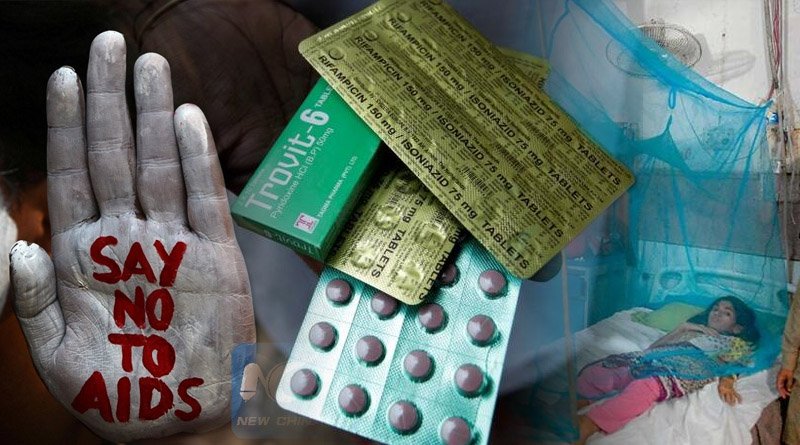“The Pakistani health authorities submitted all of their proposals for the GFATM grant on time for the first time in history,” Dr. Palitha Mahipala said.

In order to receive a grant from the Global Fund to Fight AIDS, Tuberculosis, and Malaria (GFATM) in the first window, the federal health authorities successfully submitted three funding proposals for the first time in Pakistan’s history, according to officials.
These proposals called for funding to be given to both governmental institutions and non-governmental organisations. According to health officials, the international financing and partnership organisation has allocated over $281 million from 2023 to 2025 to fight AIDS, tuberculosis (TB), and malaria in Pakistan in order to create a strong and sustainable health system. The grant will be used from January 1, 2024, to December 31, 2026.
Even the WHO representative in Pakistan, Dr. Palitha Mahipala, commended the Common Management Unit (CMU) for HIV, TB, and Malaria for timely submission of the funding requests to the Global Fund in the hopes that the grant would aid the nation in managing and preventing both infectious and vector-borne diseases.
“The Pakistani health authorities submitted all of their proposals for the GFATM grant on time for the first time in history. Over $280 million will almost certainly arrive in Pakistan, bolstering the healthcare system’s ability to combat these three diseases.” On the eve of World TB Day in 2023, Dr. Palitha Mahipala said.
Officials from the National Health Services, Regulations, and Coordination (NHS, R&C) ministry told the media that, despite the additional safeguard policy, they had asked the funding agency to provide funds to both the government and the NGOs.
They added that this submission was the result of several weeks of hard work, support from UN partners, consultations with national and international health experts, as well as Community-Based Organizations (CBOs).
Federal and provincial programmes cannot take action to manage and prevent these diseases without funding, a representative of the NHS told R&C.
“In our funding proposals, we have submitted that both the government and NGOs should be made the principal recipients of the global fund grant.” The $281 GFATM Grant letter states that approximately $181 million will be used to combat TB, $65 million to prevent and treat HIV, and $34 million to combat malaria.
The official added that the United Nations Development Programme (UNDP) and a private organisation named Nai Zindagi Trust were the primary recipients for HIV in the previous grant cycle. National TB and malaria control programmes were the primary recipients for tuberculosis and malaria, respectively.
The Global Fund’s grant for HIV response is provided to five sub-recipients, including the National AIDS Control Programme (NACP) and provincial AIDS control programmes in Punjab, Sindh, Khyber Pakhtunkhwa, and Balochistan.
Despite spending millions of dollars, new HIV infections increased by 84% from 2010 to 2022, with 25,000 new HIV infections reported in 2021 and 27,000 projected in 2022. Pakistan is one of the few countries in the Asia Pacific region where new HIV infections are prevalent.
The Joint United Nations Programme on HIV/AIDS (UNAIDS) has identified Pakistan’s HIV situation as a major concern. According to national data, over 10,000 people were diagnosed with HIV from January to December 15, 2022, including 496 from the Islamabad Capital Territory.
WHO experts believe that new HIV infections are increasing in all four provinces, but particularly in Punjab and Sindh, where they are increasing manifold. Out of 210,000 HIV cases in Pakistan, 50% and 43% of patients are from these two provinces, respectively. The epidemic remains largely concentrated in key populations.
Similar to this, Pakistan is seeing an increase in TB and malaria cases. Pakistan currently ranks fifth in the world for the number of TB cases, according to WHO officials in Islamabad, while malaria cases have doubled since last year. This year, the nation reported five million cases of malaria. To stop new cases, they demanded that the HIV, TB, and malaria control programmes be completely revamped.